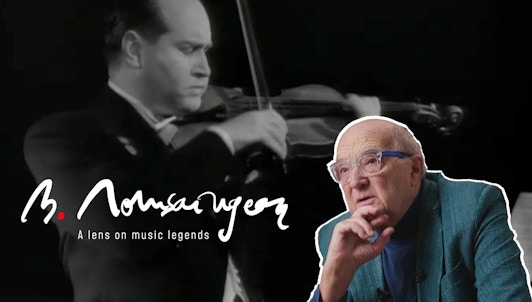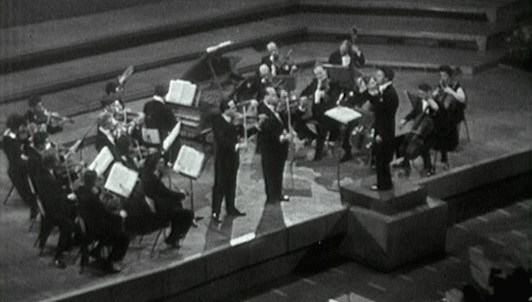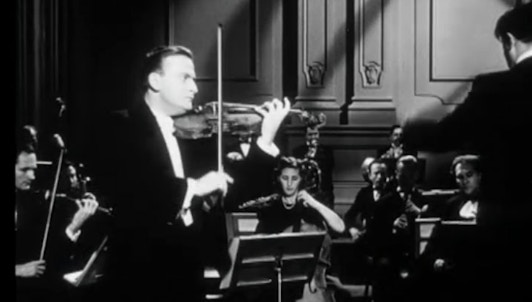Two legends pay tribute to Bach: a great moment.
"The fact of both having Jewish and Russian origins meant we shared the same musical language," says Yehudi Menuhin when talking about his relations with his friend and fellow musician David Oistrakh. "I didn't speak Russian, he didn't speak English, but we communicated in a sort of German dialect. A friendship that withstood the iron curtain was born in 1945 between the American from New York and the Russian from Odessa. That year, Menuhin was invited by the Soviet government and flew to Moscow. Upon his arrival, Oistrakh was there to greet him.
"From that day on," recalls Menuhin, "and until his death in 1974, we never stopped playing together." Bach's Double Violin Concerto or Mozart's Sinfonia Concertante. He would conduct the Beethoven Concerto for me and I would conduct the Brahms Concerto or vice versa. He was a prince, the best colleague I ever had," concludes Menuhin. Oistrakh's phenomenal mastery of the instrument and musical integrity was shared by Menuhin in a spirit of friendship, as expressed in the glances exchanged between them in this Double Violin Concerto by Bach, filmed in the Salle Pleyel in Paris in 1958, with the RTF Chamber Orchestra conducted by Pierre Capdevielle.
Yehudi Menuhin as a child was undoubtedly "among the most precocious of child prodigies." For this Mozart of the violin, the music of the Austrian composer is as familiar as his mother tongue: while rehearsing, in 1967 before Claude Ventura's cameras, the finale of the first movement of the Third Concerto with the ORTF Chamber Orchestra, the orchestra naturally calibrates its performance on that of Yehudi Menuhin. And this climate of intelligence pervades the ensuing concert.
Archives
- Concert pour la journée des nations-unies by Claude Loursais, INA, 1958.
- Initiation à la musique by Claude Ventura, INA, 1967.


